The dark Olympic Games issue we can no longer ignore
Away from the bright lights of Olympics glory lies an unspoken and uncomfortable reality endangering athletes that can no longer be ignored.
Even without huge crowds, the electric atmosphere surrounding the Olympic Games in Tokyo is intoxicating, with the best of the best competing for glory in a glittering spectacle of physical excellence.
It’s truly something to behold for viewers, crowded around their televisions in living rooms across the globe to witness their countrymen and women vie for glory.
There are countless moments of united celebration beneath the bright lights of stadiums and arenas, but overnight, we were reminded of the extreme stress plaguing Olympians away from that spotlight – a gruelling and unrelenting weight that’s rarely seen.
Superstar American gymnast Simone Biles shocked the world overnight when she pulled out of the women’s artistic gymnastics finals to focus on her mental health.
Her teammates, left to compete without her, took home silver. Biles fronted up to a press conference afterwards where she was peppered with questions about what had gone wrong.
“Whenever you get in a high-stress situation, you kind of freak out,” she told reporters. “I have to focus on my mental health and not jeopardise my health and wellbeing.”
Biles said she had been inspired by the recent high-profile example set by tennis champion Naomi Osaka, who withdrew from the French Open last month and then skipped Wimbledon for mental health reasons.
RELATED: Naomi Osaka’s candid confession ahead of Tokyo Olympics campaign
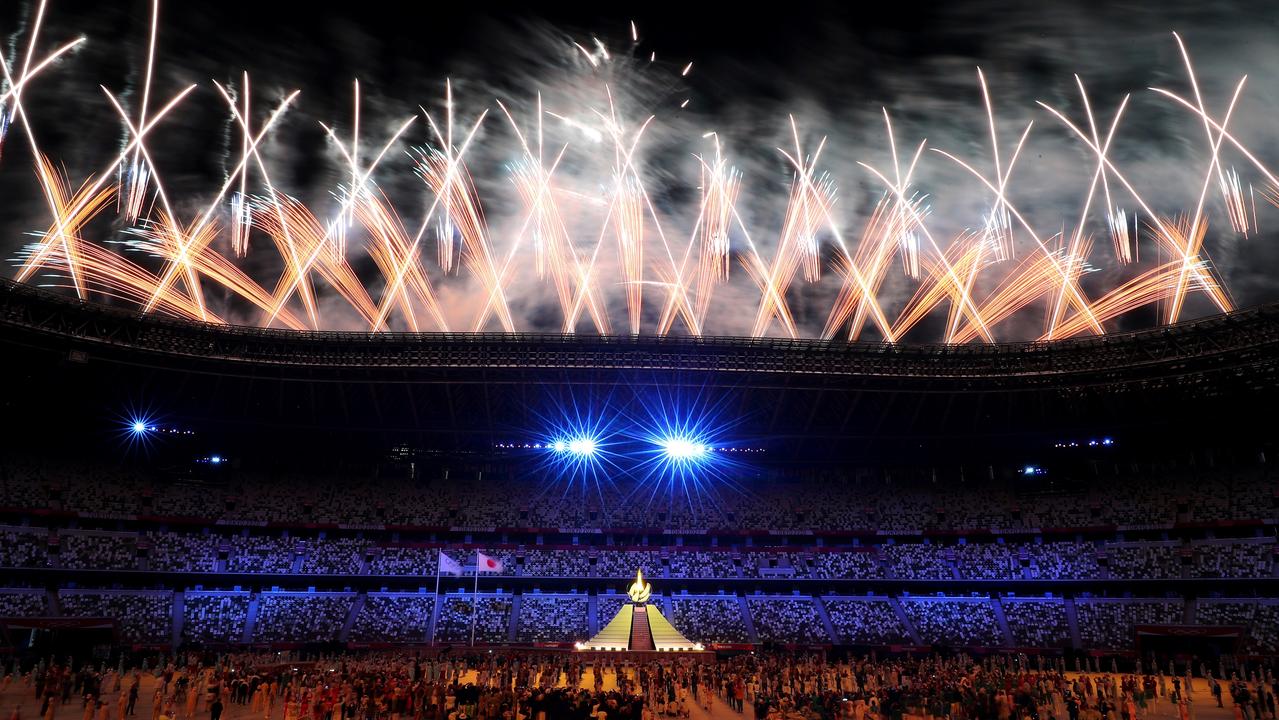
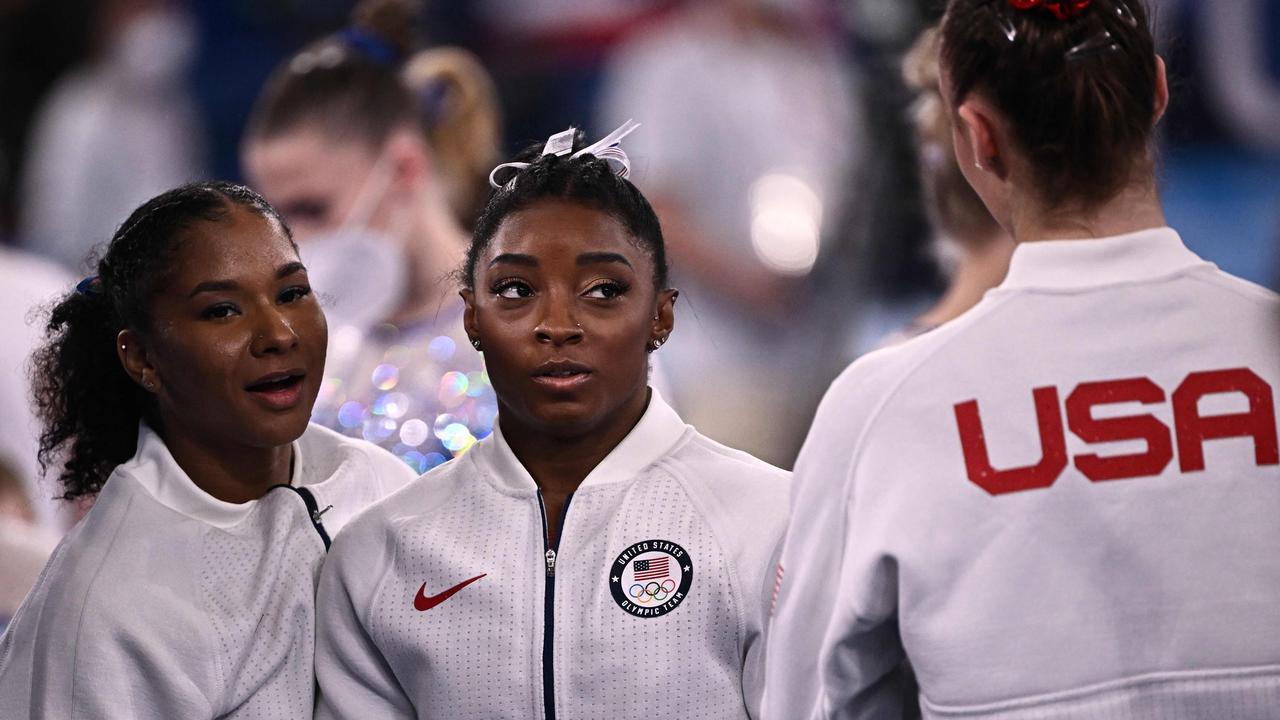
Both have faced subtle questioning over whether their unseen challenges were severe enough to warrant not competing.
Some criticism has been as far from subtle as you can get, with controversial British broadcaster Piers Morgan taking to Twitter with a scathing attack of Biles.
“Are ‘mental health issues’ now the go-to excuse for any poor performance in elite sport? What a joke. Just admit you did badly, made mistakes, and will strive to do better next time. Kids need strong role models not this nonsense.”
He also attacked Osaka after the French Open for appearing on the cover of Sports Illustrated magazine, tweeting: “ANOTHER magazine cover for brave inspiring Naomi! No wonder she had no time for beastly media press conferences!”
She shot the cover image a year earlier. Morgan declined to retract his criticism after learning that detail.
Osaka and Biles are now two very prominent reminders that it’s not just physical setbacks that elite sportspeople face.
You might not see an injury. It’s not a sprained muscle, a concussion, a fractured bone, a bloody nose or a torn ligament.
But mental pressures are real and dangerous – and never more so right now than ever before.
“If you look at the percentages of people who have mental health illness in general, it ranges from 40 per cent to 50 per cent,” Dr Naresh Rae, head physician for the US Water Polo team and member of the US Olympic and Paralympic Committee, told Time.
“Throw in the pandemic, and the fact that many of these athletes are teenagers or young adults, and you start to see the percentage could go up to as high as 70 per cent.”
RELATED: Why Simone Biles abruptly walked out on Olympics gymnastics final
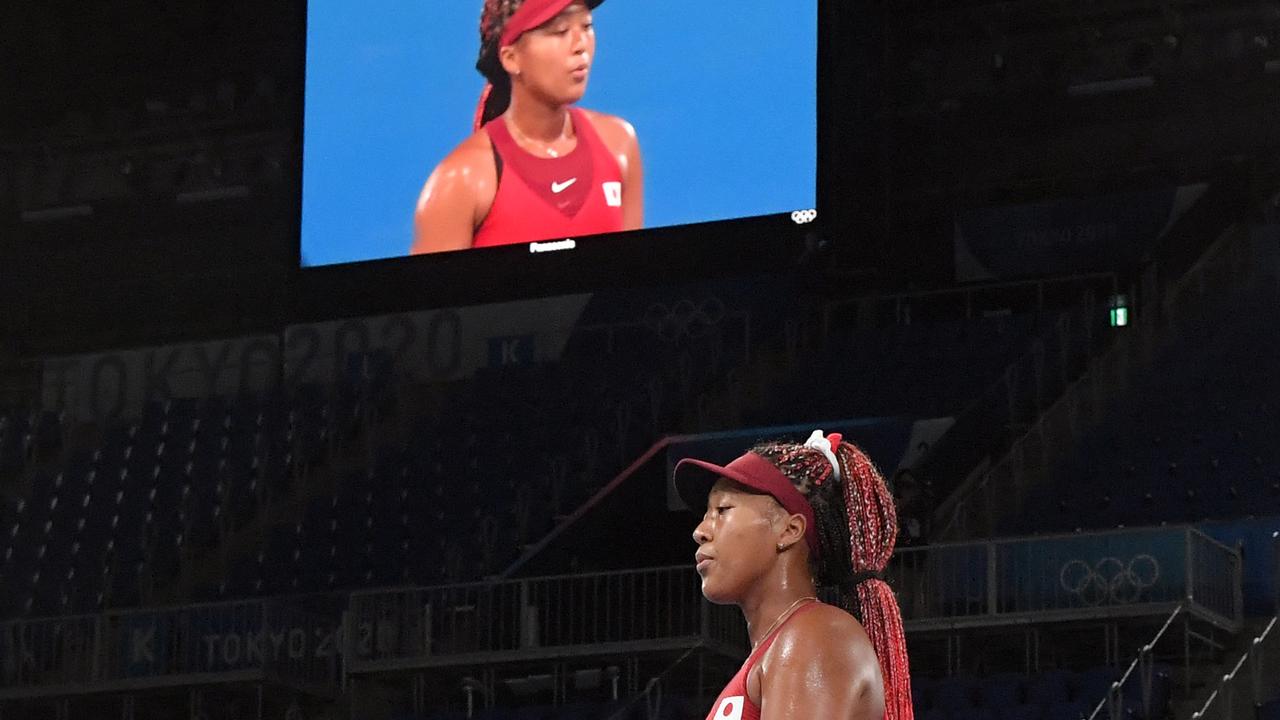
An unprecedented era of mental challenges
Angela Schneider is the director of the International Centre for Olympic Studies at Western University in Canada, and said the extraordinary stress endured by athletes at the moment is unlike anything seen in modern sport.
“Much has been made about the lack of spectators at these pandemic Olympics, as well as the dangers of putting thousands of athletes together in proximity (during Covid-19),” Professor Schneider wrote in an article for The Conversation.
“But there have been other challenges facing the athletes that may not be apparent.”
Having competed at the Olympics in 1984 in Los Angeles, Professor Schneider understands the intense preparation and pressure to perform athletes endure.
“But what makes these Olympics more remarkable is the impact the COVID-19 pandemic has had on athletes over the last 18 months — not just on their physical training, but their mental wellbeing.”
For starters, those Olympians currently vying for glory had relentless prepared themselves to do so a year ago before the Tokyo Games were postponed due to coronavirus.
They had pushed themselves to the limit, undergoing gruelling training and intense physical and mental preparation for several years, before abruptly hitting pause on their ambitions.
Suddenly, that hard work and planning was for nothing. The toll of asking them to come back in another 12 months is untold.
“It saw our athletes needing to not only readjust their regular training program to account for this, but they were also required to readjust emotionally, socially and mentally to meet the new timeline,” Georgia Ridler, a sports psychologist and the Australian Olympic Team’s lead psychologist, wrote for BodyAndSoul.
“Four years is a long time to work towards a goal. With the postponement of the Games and the onset of the pandemic, many athletes would have experienced emotions of shock, uncertainty and grief for the loss of such a significant goal, as well as the loss of their daily training routine that they were so accustomed to.
“Most athletes would have ridden a wave of denial, anger, sadness and acceptance, which is known as the grief cycle, in their emotional adjustment to the Games being delayed.”
Around the world, regardless of the sport, psychologists have reported soaring demand for counselling, including online therapies, during the pandemic, Professor Schneider said.
Diagnoses of psychological disorders among athletes have also increased sharply.
Like many of us, Olympians have been housebound since the pandemic began with minimal training and uncertainty about the future of their sports.
Resulting emotional distress is compounded by the abrupt cancellation of events, competitions and seasons, sparking significant uncertainty.
French judo champion Clarisse Agbegnenou, who won silver in Rio de Janeiro in 2016, told EuroSport that being an athlete during the time of covid was like “being in the fog”.
“The uncertainty about when we will be able to train and compete is very difficult to handle. I like to schedule things in advance. Being in the fog really turned me down.”
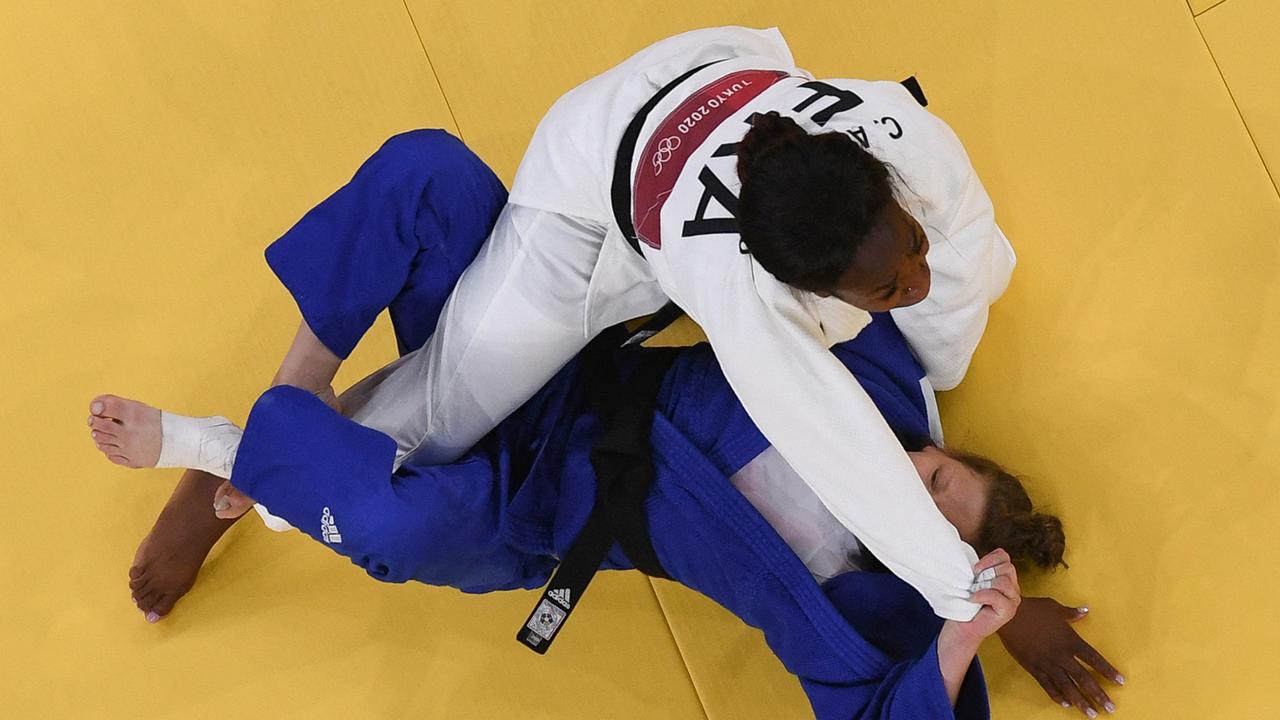
Athletes impacted have likely felt “significant grief, stress, anxiety, and sadness”, Professor Schneider said.
When will they be able to return to preparation and competition? How will they make ends meet financially? Will they still be in peak form when they return to the pool, track, field or court?
Sportspeople have had to ask themselves a lot of daunting questions over the past 18 months, living with constant stressors while still being expected to remain in peak physical and mental condition.
“The sense of uncertainty and the unforeseeable future because of the pandemic has contributed to significant psychological distress in athletes,” Professor Schneider said.
“Elite athletes reported uncertainty about their future, decreased income, modified university teaching procedures, unavailable facilities and cancelled competition as the leading psychological stressors.
“Olympic athletes train non-stop for four years before competing in the Games. Usually, athletes split up their funding over those four years, but the postponement of the Tokyo Games put many athletes in a difficult financial situation, resulting in many of them being short one year of funding.
“It’s a common misconception that Olympic athletes are financially well off. The truth is that most Olympians do not have sufficient financial support and find themselves working side jobs.
“Other factors, like being housebound with minimal training equipment, having no time frame for returning to their sport and social isolation, resulted in many athletes (feeling) anxiety and stress.”
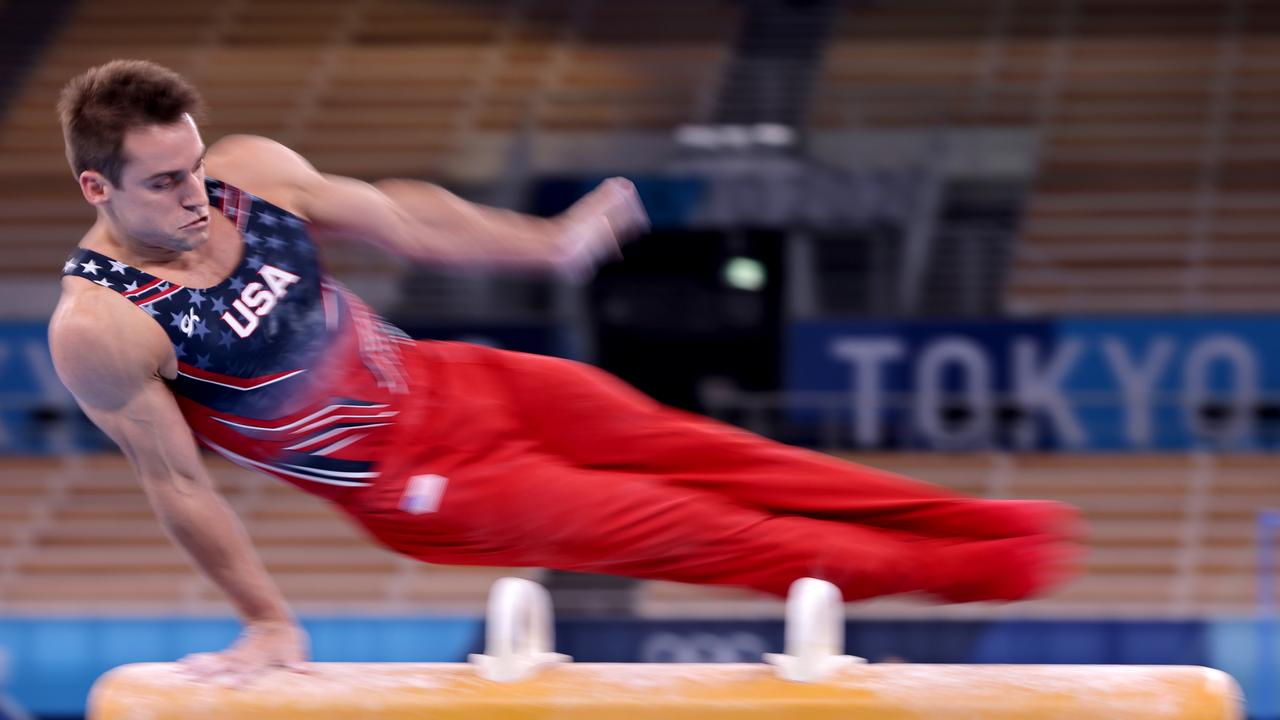
Time is also not unlimited for sportspeople and a lost year or more could be the difference between sporting glory and lost opportunity.
SportAide is a not-for-profit organisation said the majority of athletes only get to compete in one Olympics and making a Games past the age of 40 is extremely unlikely.
The lack of certainty during covid has placed extreme stress on people who already live in the constant shadow of their own longevity.
SportAide also said isolation and inactivity, as well as constant feelings of disappointment and uncertainty, have caused anxiety, psychological distress and depression.
Sam Mikulak is an American gymnast currently competing in his third Olympics in Tokyo and described the extra time to think during the pandemic as an overwhelming experience.
“I just kept coming back to the idea that I just don’t know who I am without gymnastics,” Mikulak told Time
“I was going through an identity crisis and asking myself how I can find happiness, where is the happiness if I don’t have this sport.”
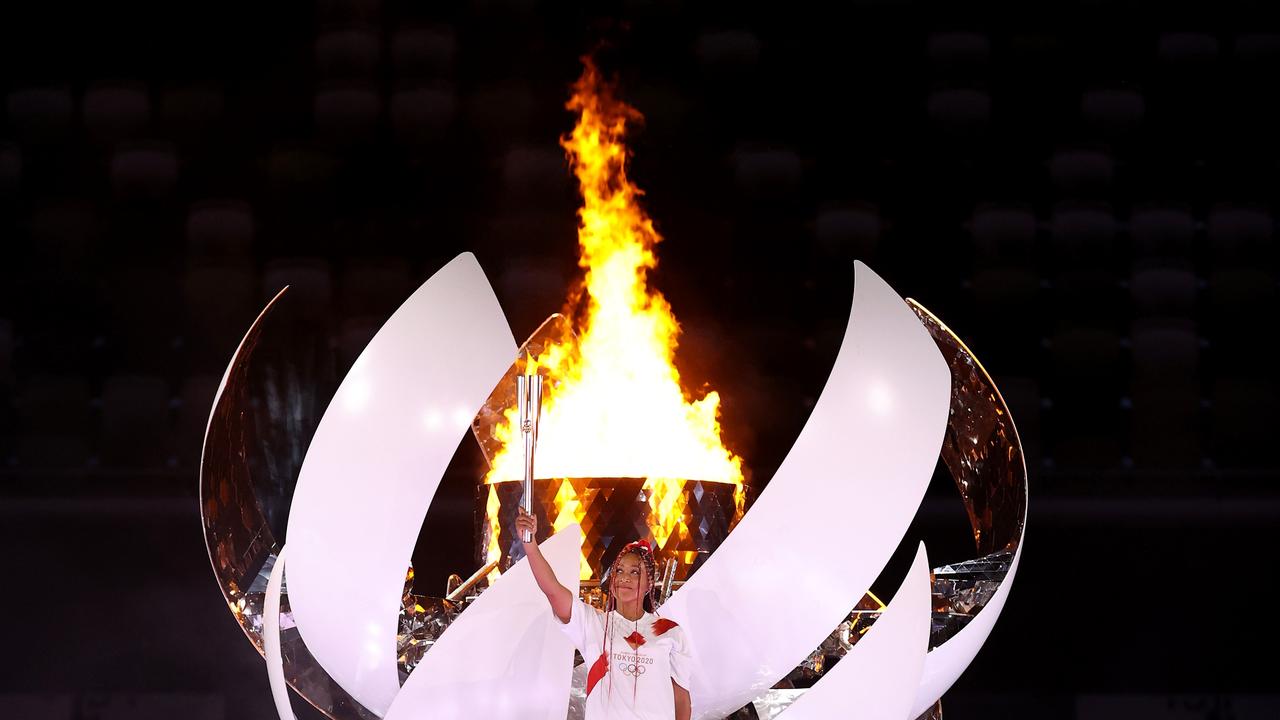
Gruelling at the best of times
Superstar gymnast Biles is the most decorated figure in her sport in American history, regarded as one of the greatest of all time.
The 24-year-old has a combined total of 30 World Championship and Olympic medals and her personality and attitude have made her something of a rock star and attracted a new generation of young fans.
Her withdrawal on Tuesday night sent shockwaves through the sport and the broader Games community.
“After the performance I did I just didn’t want to go on,” she said at a media conference, visibly shaken and fighting back tears.
“No injury, thankfully, and that‘s why I took a step back because I didn’t want to do something silly out there and get injured. I thought it was best if the girls took over and did the rest of the job which they absolutely did it’s been really stressful these Olympics.”
At the best of times, the mental pressure endured by athletes can be extreme, Dr Erica Gaertner of the LifeBridge Sports Medicine Institute told WBALTV.
“When you‘re a top athlete, you really always want to be perfect so even the smallest error that’s not much for somebody else, it’s a really huge deal for you,” Dr Gaertner said.
“I think when you have that much pressure on you and Simone going through this, she‘s the greatest of all time right now, and she has all that pressure – she’s human and it can get to anybody.
“She‘s realising she’s not at her best even if she’s physically fine, the mental game is a huge part of athletics.”
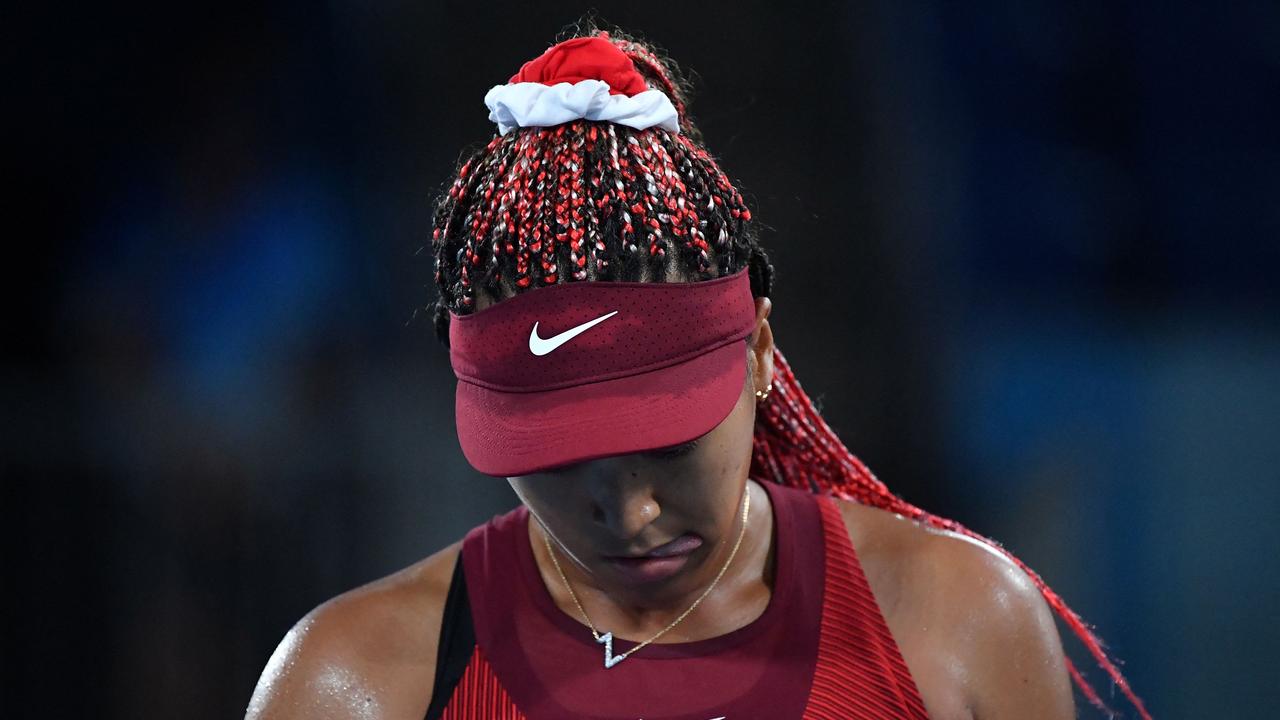
It’s not just Olympians who are struggling, with FIFPro, the association representing some 65,000 professional footballers globally, reporting high levels of distress.
Anxiety and depressive symptoms in players had doubled since the start of the pandemic, the organisation said in a startling report, with fears over a future in the game the leading factor.
Osaka – the face of the Tokyo Games – sparked a conversation about mental health in sport when she withdrew from the French Open in May and then skipped Wimbledon.
After withdrawing from Roland Garros, she was slapped with a $15,000 penalty for not honouring contractual commitments to attend a press conference.
“Perhaps we should give athletes the right to take a mental break from media scrutiny on a rare occasion without being subject to strict sanctions,” Osaka later wrote in a Time article. She titled it: “It’s OK to not be OK.”
After her eight-week break to focus on her mental health, Osaka said: “Athletes are humans.”
On Tuesday, she lost in the third round of the women’s singles to Marketa Vondrousova from the Czech Republic.
“I definitely feel like there was a lot of pressure for this,” Osaka said at a press conference afterwards.
“I think it’s maybe because I haven’t played in the Olympics before, for the first (time it) was a bit much. I think I’m glad with how I played, with taking that break that I had.
“I’ve taken long breaks before and I’ve managed to do well. I’m not saying that I did bad right now, but I do know that my expectations were a lot higher.
“I feel like my attitude wasn’t that great because I don’t really know how to cope with that pressure so that’s the best that I could have done in this situation.”
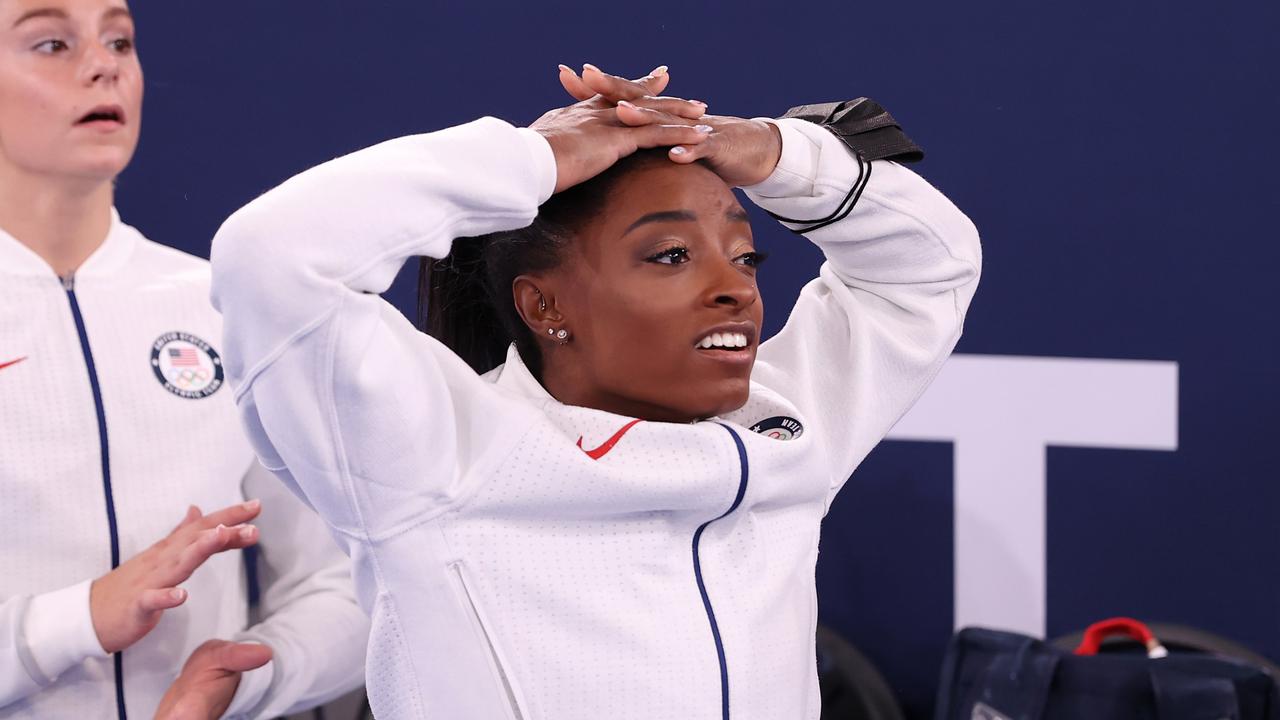
Don’t be too harsh on athletes when they falter
The overwhelming response overnight from fans in the wake of Biles’ withdrawal was one of sympathy and concern, but in the often-ruthless world of social media, it has been a different story.
Trolls have piled on. Morgan has doubled down on his attacks, labelling her “a joke” in a series of tweets that many labelled nasty and spiteful.
Athletes are now deemed more courageous, inspiring & heroic if they lose or quit then if they win or tough it out, which is ridiculous.
— Piers Morgan (@piersmorgan) July 27, 2021
I blame Twitter’s virtue-signallers for fuelling this culture of celebrating weakness. The real world doesn’t think like that.
Dr Gaertner said an onslaught of criticism and abuse could make Biles’ mental health even worse and those watching on shouldn’t be so hard on her, or any athletes when they make mistakes.
“I think by being supportive on social media is so huge right now and it can make things worse or better,” she said.
Australian footballers across the codes have recently started a conversation about the mentally damaging abuse they cop online from fans after losses. Several spoke up about the vile remarks, death threats and even encouragement to commit suicide they have received.

Melbourne Storm star Ryan Papenhuyzen said it was disturbingly common and spoke of the heavy toll it can take.
“I don’t think that’s a surprise to many players because the majority would have (received death threats),” Papenhuyzen said.
“Whenever you have a bad performance or your team loses, it’s quite crazy actually.
“You get told not to bite … it gets to a point people are threatening you to get a long-term injury, that stuff isn’t on. It’s that common that people ignore it and try not to add fuel to the fire.”
AFL Players’ Association chief executive Paul Marsh condemned the behaviour of social media trolls, which he said was increasingly common in the sport.
“Week after week after week our players are being treated like this on social media. It’s disgusting and shameful and has to stop,” Mr Marsh tweeted.
“The irony of this person saying someone else should be ashamed …”
Everyone’s a critic, especially in circumstances of competition, but Professor Schneider said a bit of understanding of what the past 18 months have been like is essential.
“As we all continue to watch and cheer for those competing in Tokyo, keep in mind what these athletes have had to endure over the last 18 months just to make it to these unique Olympic Games.”
It could also be a moment of reflection for all of us, Ms Ridler said.
“Our athletes are coming out the other end with a stronger focus on what is within their control. They have discovered a new appreciation for their ‘controllables’, which is the power to stay focused on what is within our control and letting go of what’s outside our control.
“As the world (watches) Tokyo 2020, now is a great time to reflect on what we’ve all learnt and experienced from the past year and look to our Olympians and Paralympians as inspiration and motivation to keep persevering.”




